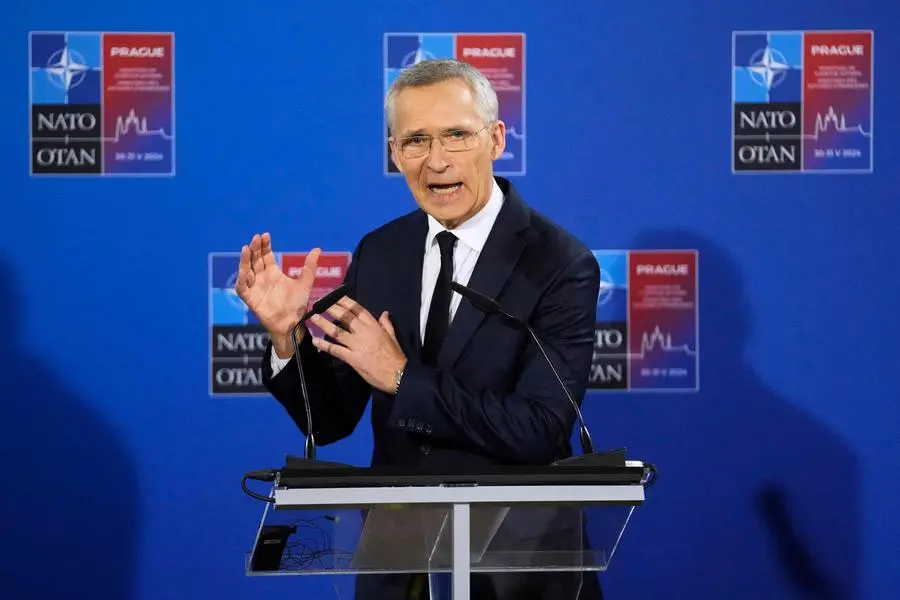PHOTO
NATO chief Jens Stoltenberg on Friday called on members to commit to keeping annual military aid for Ukraine at a minimum of 40 billion euros ($43 billion), after alliance foreign ministers debated long-term support for Kyiv.
NATO members -- led by the United States -- have given the vast bulk of military aid to Kyiv to help it battle against Russia's invasion since Moscow attacked in 2022.
"Since Russia's full-scale invasion in 2022, allies have provided approximately 40 billion euros worth of military aid to Ukraine each year. We must maintain at least this level of support each year, for as long as necessary," Stoltenberg told journalists after foreign minsters met in Prague.
"I have also proposed that allies should share this burden equitably."
The head of the Western military alliance said he wanted NATO's 32 countries to hammer out the "multi-year financial pledge for Ukraine" to announce it at a summit of leaders in Washington in July.
"We need a firm commitment for the long haul to ensure that Ukraine is able to plan, to ensure that Ukraine has the predictability they need to conduct this war of self-defence," Stoltenberg said.
He said that one way to measure each country's commitment could be to tie it to the size of their gross domestic product, but the plan was not finalised.
"We will now start the work on the details of such a financial pledge," Stoltenberg said.
Over two years into Russia's all-out war on Ukraine, Stoltenberg is seeking to put NATO's support on a firmer footing ahead of a possible return to the US presidency of Donald Trump.
After pressing hard at a summit last year, Kyiv has been told firmly by NATO countries -- led by the United States and Germany -- that it should not expect any concrete progress toward joining the alliance in Washington.
Last month Stoltenberg floated an overall target figure of 100 billion euros ($108 billion) over five years for Ukraine support, but that fell flat among allies confused over what it would involve.
Czech foreign minister Jan Lipavsky welcomed Stoltenberg's latest proposal and said it seemed manageable as it only represented a miniscule fraction of defence expenditure.
But he said how to ensure countries stuck to their commitments remained if governments change in the future "the trillion dollar question".





















